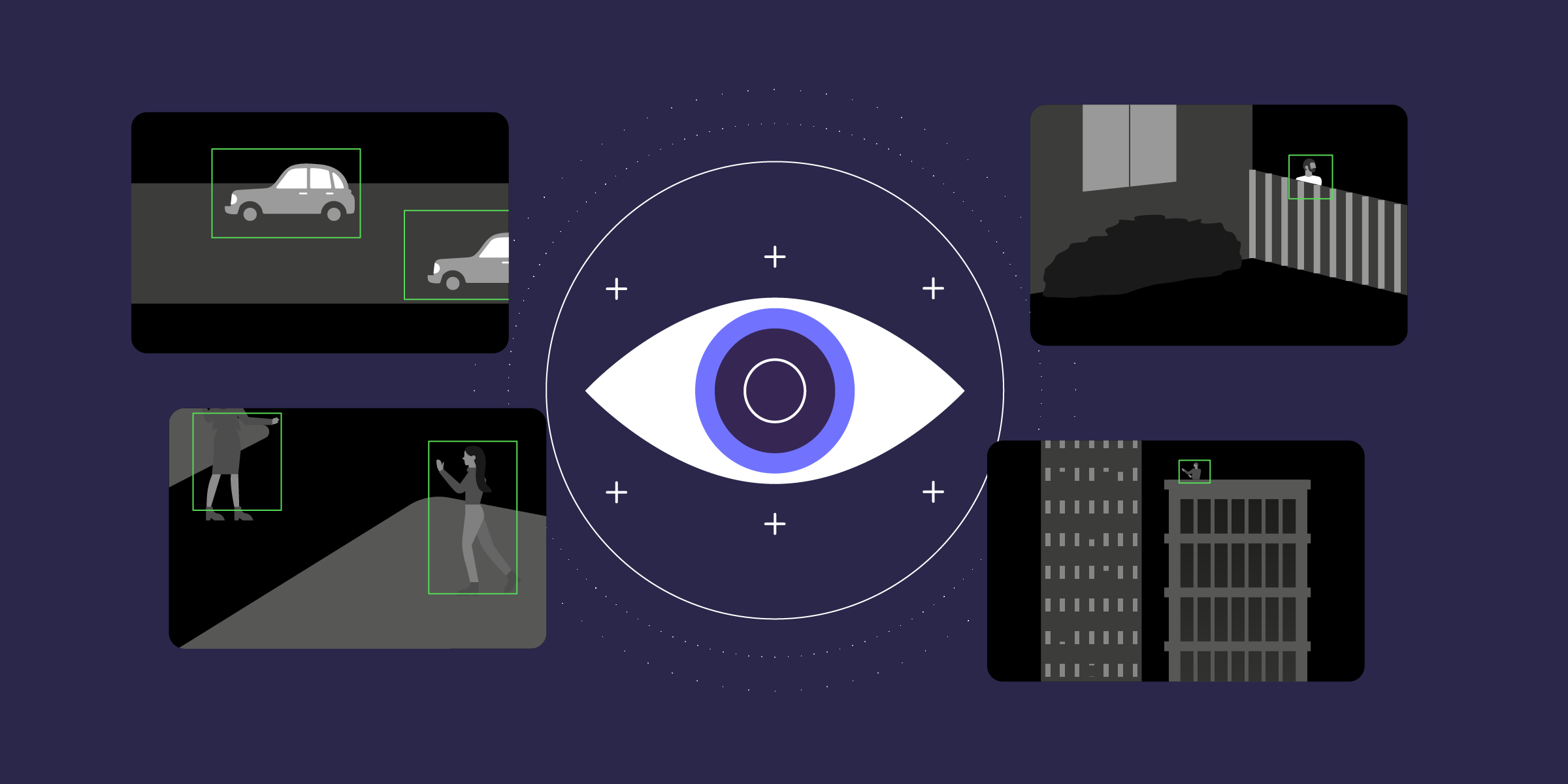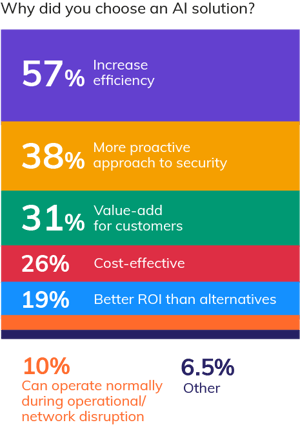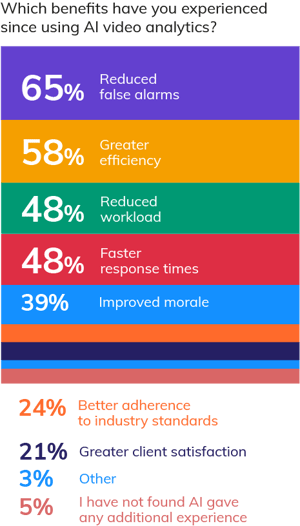Why intelligent video analytics adoption is the security trend to watch
- Featured Post

Artificial intelligence (AI) has become a business buzzword in recent years, with increasing numbers of “intelligent” services on offer. While there is a lot of hype around what can be achieved with AI, it does have proven benefits. Many businesses are choosing to adopt intelligent technologies to improve their processes and performance, with noteworthy results.
Business adoption of artificial intelligence in 2020
According to McKinsey’s global survey, The State of AI in 2020, 50% of respondents have adopted AI in at least one business function. Product and service development is a consistently high adoption area: a combined 45% used it for product enhancements and feature optimisation, whilst nearly a quarter (24%) have adopted it for service-operations optimisation. Meanwhile, 17% of businesses use AI to enhance their customer service analytics.
In product / service development, 65% of businesses have seen an increase in revenue thanks to AI adoption. In service operations, 57% of businesses have seen a revenue increase.
These results demonstrate that businesses are adopting AI on a large scale across many key functions - trends that Calipsa has seen in the security industry as a whole, and specifically in the video monitoring industry.
Intelligent video analytics adoption in the security industry
In Calipsa’s Video Monitoring Report 2020, we discovered that security businesses are keen AI adopters, particularly of video analytics solutions. Video analytics can identify false alarms and intercept them, which prevents a human monitoring operator’s workflow from becoming overwhelmed with time-wasting and unnecessary work.

87% of security businesses we surveyed use video analytics, rising to 98% amongst video monitoring stations. 69% of businesses reported that their main reason for adopting video analytics was to reduce false alarms.
Like the businesses in the McKinsey report, many of the security companies we spoke to adopted AI to enhance their products, services and customer experience.
68% of those surveyed said their video analytics solution was AI-based; more than half (57%) said that increasing efficiency was their main reason for adopting the technology, while 31% felt it would offer their customers added value.
Those businesses that haven’t adopted intelligent video analytics yet gave two reasons: 80% said they are yet to find the right product, while the remaining 20% said that training operators on new technologies was a deterrent. We have published a handy buyer’s guide for those businesses looking to find the right video analytics solution - find it here.

One of the key performance metrics for video monitoring service providers is alarm response time. High volumes of false alarms can take valuable time away from genuine alarms, causing delays; removing the root cause of the delay speeds up an operator’s response time.
This is reflected in our results: 85% of businesses reported that video analytics improved their response time, and after using video analysis, businesses saw an average reduction of 28 seconds.
We have also seen AI adopters become firm AI advocates; 71% of businesses who use intelligent video analytics said they would recommend them to clients or colleagues. Nearly all (98%) of the AI-adopter security businesses said it had reduced their false alarms, by an average of 52%. This technology also fulfilled the process and service-driven needs we saw above: 58% saw greater efficiency and 21% reported greater client satisfaction.
Want even more security trends and insight? Download the full FREE report:
What are the future intelligent video analytics trends?
The COVID-19 pandemic brought on huge technological and operational changes for many businesses in 2020, which are likely to continue well into 2021. AI-based solutions have helped many businesses in the security industry and further afield manage their operations and customer service.
While many businesses have increased their investment in technology in response to the pandemic, the extent of this investment varies. Experienced AI adopters are much more likely to invest more in this technology than other businesses; the McKinsey report shows that 61% of high performing adopters increased their investment in AI during the pandemic, whereas only 25% of other adopters did the same.
What is clear from these figures is that businesses are investing in AI, albeit to varying degrees. In Deloitte’s third edition of the State of AI in the Enterprise survey, the authors suggest that we are moving from the “early adopter” phase to the “early majority” phase of AI use.
In essence, this means that many more businesses are investing in this technology and are more confident in the benefits it can bring. 74% of businesses said they think that in the next three years, AI will be fully integrated into all aspects of their business, and 64% say it helps them to gain a competitive edge.
When we look at technology like intelligent video analytics, the picture looks positive. Asked in 2019, 67% of Deloitte’s survey respondents said they currently used machine learning technology and 97% were using or planning to use it in 2020. Similarly, 56% reported they were using computer vision and 94% were using or planning to use it in 2020.
Amongst the security businesses Calipsa surveyed for our 2020 report, nearly a quarter (24%) of small businesses and 1 in 5 (20%) of corporates planned to invest in video analytics in the future. With businesses of all sizes convinced of their benefits, the future looks positive for intelligent video analytics.
Enjoyed this article? Download the full Calipsa 2020 Video Monitoring Report for free, for even more data and insights:








No comments